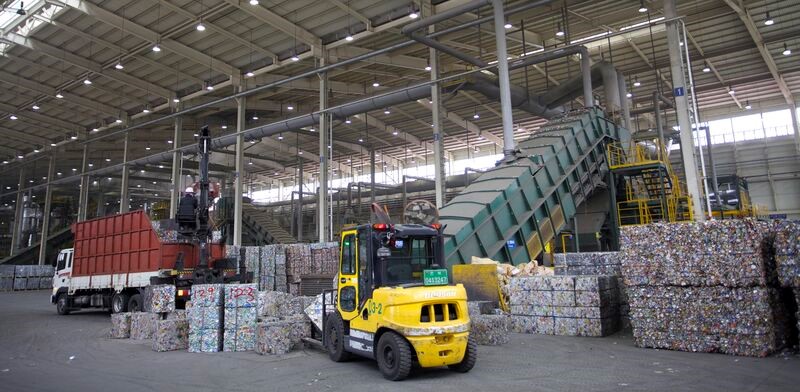

Novelis, one of the world’s largest recyclers of aluminium and a global pioneer in the development of new aluminium goods and solutions, has recycled a total of 133.3 billion aluminium cans since its inception in 2012.

On Monday, March 21, Novelis announced its record-breaking news of recycling a total of two million aluminium cans in its Yeongju, Korea, recycling plant. As we all know how harmful CO2 is for our environment, Novelis’s achievement of recycling this many cans has resulted in saving 20 million tonnes of carbon emission (CO2), which is the equivalent of planting 340 million trees every year.
Recycling aluminium cans helps to reduce environmental impact by lowering energy use and natural resource extraction. When compared to creating new aluminium from mined resources, recycling aluminium reduces carbon emissions and energy usage by 95 per cent.
To achieve this milestone, the Yeongju Recycling Centre had built a closed-loop recycling system within 60 days that recycled used aluminium cans into new ones. The Yeongju Recycling Centre is Asia’s biggest capacity for aluminium cans. With repeated investments, the plant boasts an annual production capacity of manufacturing 340,000 tonnes of low-carbon aluminium sheet ingots. Every year, the facility recycles around 18 billion beverage cans. The equivalent Novelis Yeongju factory has been completely accredited by the Aluminium Stewardship Initiative (ASI), a global standard certifying authority in the aluminium sector, for sustainable manufacturing.
Novelis recycles 74 billion aluminium cans yearly through its state-of-the-art aluminium recycling plants in Asia, Europe, North America, and South America. To fulfil the rising demand for low-carbon sustainable aluminium goods, the business has announced the development of a new recycling plant in South Korea. It wants to establish a 100,000-tonne-per-year factory in Ulsan, South Korea, by 2024.
“Aluminum is an ideal material for the low-carbon circular economy since it is infinitely recyclable and therefore eco-friendly. Novelis will develop more technologies and spur investments to achieve carbon neutrality by 2050,” stated Sachin Satpute, President, Novelis Asia.

In April 2021, Novelis unveiled its sustainability targets, pledging to become carbon neutral by 2050 or sooner, and to cut carbon emissions by 30 per cent by 2026. By 2026, the corporation wants to cut its energy and water use by 10% and reduce trash to landfills by 20 per cent. The corporation also wants to move toward a completely circular economy and build a more diverse, inclusive, and safe workplace, according to its strategy.



Responses






